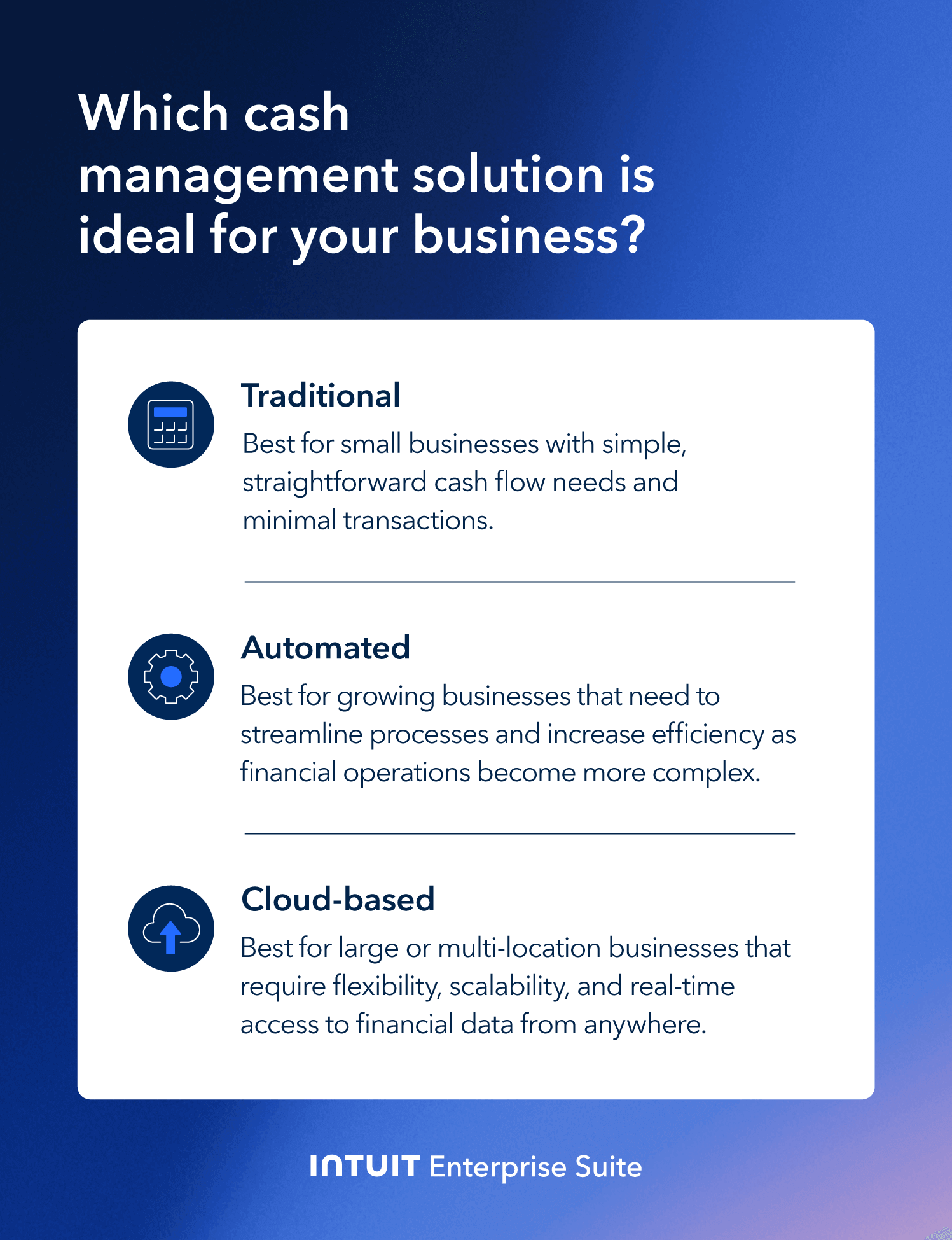1. Cash flow monitoring
This feature gives you a live, up-to-date look at how much cash your business has in the bank. It shows all accounts in one place so you can spot changes fast and make quick decisions when needed.
Key benefits:
- Tracks all cash across accounts and locations
- Helps avoid overdrafts or missed payments
- Improves planning with real-time data
2. Payables and receivables management
Automating payments and collections helps you stay on top of what’s owed to you and what you owe. It makes sure bills go out and get paid without delays or mistakes.
Key benefits:
- Sends invoices and reminders automatically
- Speeds up collections
- Reduces late fees and improves vendor relations
3. Reconciliation
Matching your bank records to your system records can be a headache. The cash reconciliation feature does it for you, saving hours and reducing the chance of errors or fraud.
Key benefits:
- Flags missing or duplicate transactions
- Reduces the risk of fraud or mistakes
- Gives you a clear, verified financial picture
4. Analytics and reporting
This feature gives you clear dashboards and reports showing key financial metrics, making it easier to track and measure important KPIs. It helps you understand how your business is doing and where you can improve.
Key benefits:
- Tracks cash flow, profits, and margins
- Identifies spending patterns and trends
- Supports smart, data-based decisions
5. Liquidity management
Liquidity management helps you keep just the right amount of cash on hand. Not too much sitting idle, not too little to cover bills.
Key benefits:
- Prepares you for expenses or slow months
- Helps decide when to invest extra cash
- Reduces risk of cash shortages
6. Security and protection
Financial data needs strong security. These tools protect against hacking, data leaks, and unauthorized access, ensuring your sensitive financial data is secure through robust measures.
Key benefits:
- Uses strong encryption standards (like AES-256)
- Includes compliance with SOC 2 and similar certifications
- Blocks unauthorized access with multi-factor authentication
7. End-to-end automation
You can save a lot of time with end-to-end business process automation (BPA). For instance, you can automate common tasks like invoicing, payments, and reports, so your team can focus on what matters most.
Key benefits:
- Cuts down manual entry
- Speeds up everyday workflows
- Lowers cost of back-office work
8. Scalability
As your business grows, your cash management system should grow with you. This feature makes that easy and helps you stay relevant to your customers.
Key benefits:
- Handles more users and accounts
- Works across multiple locations or teams
- No need to switch systems as you grow
9. Multiple currencies
If you do business internationally, this feature helps you manage cash in different currencies with ease. It takes a lot of the burden off your plate by removing the hassle of dealing with different currencies.
Key benefits:
- Handles exchange rates and conversions
- Keeps global accounts in sync
- Reduces currency-related errors
10. Advanced predictive analytics
It uses AI and smart algorithms to predict your future cash flow based on trends and past data. This data helps you make informed financial decisions about your existing cash, including how, when, and where to spend it.
Key benefits:
- Spots upcoming cash shortages or surpluses
- Helps plan seasonal spending
- Reduces the need for emergency loans
11. Integrated account management
This feature brings all your accounts—bank, credit, investments—into one place. You don’t have to juggle platforms to handle multiple accounts, which saves a lot of time and effort.
Key benefits:
- One dashboard to see it all
- Easier cash transfers and tracking
- Better control over all your funds



 Using a
Using a 







